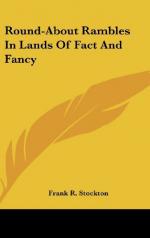This was a very grateful pike. After the excellent surgical treatment it received from Dr. Warwick, it became very fond of him, and whenever he walked by the side of the lake it would swim along by him, and although it was quite shy and gloomy when other people came to the waterside, it was always glad to see the doctor, and would come when he whistled, and eat out of his hand.
I suppose in the whole ocean, and in all the rivers and lakes of the world, there are not more than two or three fish as sensible and grateful as this pike. In fact, it was very well for Dr. Warwick that there were no more such on the Earl of Stamford’s estate. A large practice in the lake must soon have made a poor man of him, for I do not suppose that even that sensible pike would have paid a doctor’s bill, if it had been presented to him.
TWO KINDS OF BLOSSOMS.
[Illustration]
When the winter has entirely gone, and there is not the slightest vestige left of snow or ice; when the grass is beginning to be beautifully green, and the crocuses and jonquils are thrusting their pretty heads up out of the ground; when the sun is getting to be quite warm and the breezes very pleasant, then is the time for blossoms.
Then it is especially the time for apple-blossoms. Not that the peach and the pear and the cherry trees do not fill their branches with pink and white flowers, and make as lovely a spring opening as any apple-trees in the land. Oh no! It is only because there are so many apple-trees and so many apple-orchards, that the peaches and pears are a little overlooked in blossom-time.
A sweet place is the apple-orchard, when the grass is green, the trees are full of flowers, the air full of fragrance, and when every breeze brings down the most beautiful showers of flowery snow.
And how beautiful and delicate is every individual flower! We are so accustomed to looking at blossoms in the mass—at treesful and whole orchardsful—that we are not apt to think that those great heaps of pink and loveliness are composed of little flowers, each one perfect in itself.
And not only is each blossom formed of the most beautiful white petals, shaded with pink; not only does each one of them possess a most pleasant and delicate perfume, but every one of these little flowers—every one which comes to perfection, I mean—is but the precursor of an apple. This one may be a Golden Pippin; that one which looks just like it may be the forerunner of a Belle-flower; while the little green speck at the bottom of this one may turn into a Russet, with his sober coat.
The birds that are flying among the branches do not think much about the apples that are to come, I reckon, and neither do the early butterflies that flutter about, looking very much like falling blossoms themselves. And, for that matter, we ourselves need not think too much about the coming apple crop. We ought sometimes to think of and enjoy beauty for its own sake, without reference to what it may do in the future for our pockets and our stomachs.




